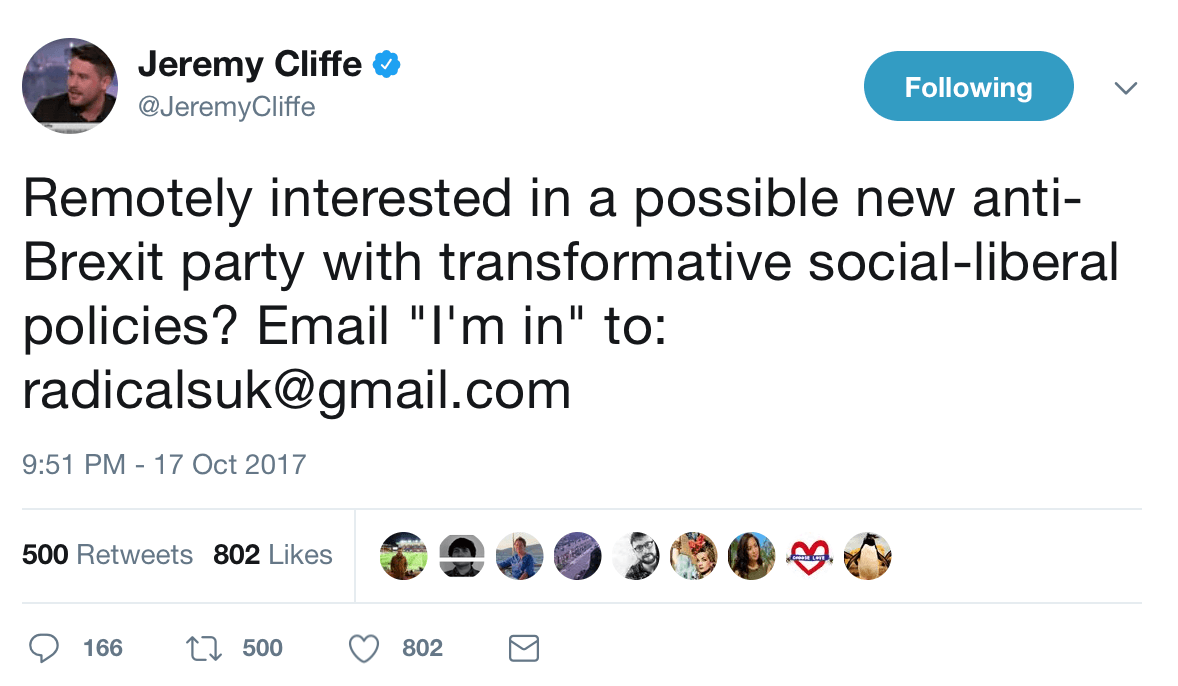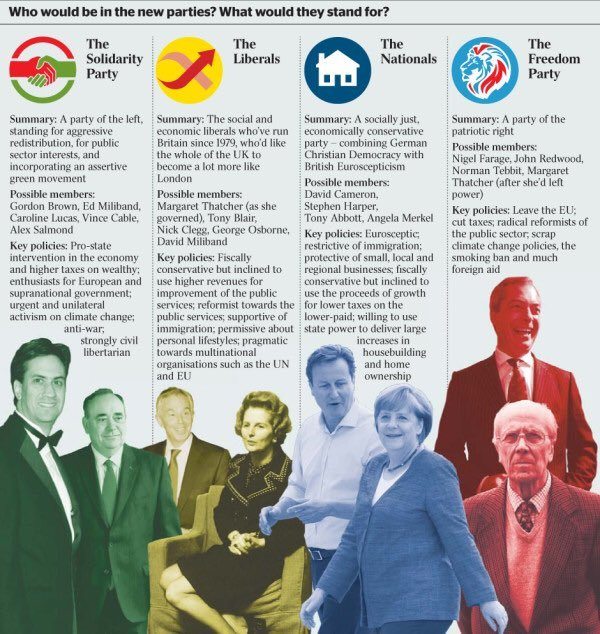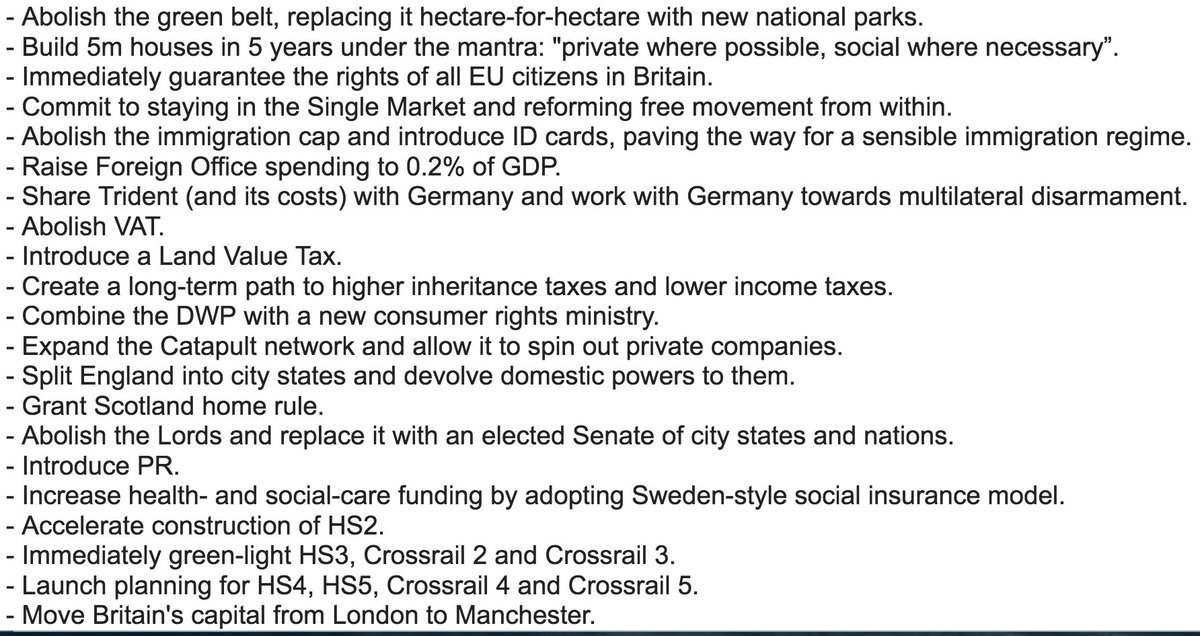Getty Images

Has Jeremy Cliffe launched a new British political party by accident? Overnight? And on Twitter?
 Yesterday evening, The Economist’s Berlin bureau chief and former Bagehot columnist tweeted: “Remotely interested in a possible new anti-Brexit party with transformative social-liberal policies? Email “I’m in” to: radicalsuk@gmail.com’.”
Yesterday evening, The Economist’s Berlin bureau chief and former Bagehot columnist tweeted: “Remotely interested in a possible new anti-Brexit party with transformative social-liberal policies? Email “I’m in” to: radicalsuk@gmail.com’.”
What Cliffe says was intended as little more than a bit of “speculative kite-flying”, a testing of the centrist waters, rapidly developed into something more substantial. He was soon getting around 45 “I’m in” emails per minute. Political veterans and commentators got in touch to give their support. People offered to help with logistics, tech, and, if and when needed, the ground game.
At the time of posting, the Radicals has a twitter feed (@RadicalsUK) of five thousand followers. Ladbrokes had the as-yet non-existent party at odds of 100/1 to win a seat at the next general election.
There is, of course, no guarantee that the Radicals will amount to more than a one-week wonder, and there’s been the predictable sniping on social media. But the idea that Britain needs a political realignment is one that refuses to go away. Cliffe has written about the subject before, and George Osborne’s former spad James Chapman has been pushing his idea of a party called “the Democrats” for some months.
In December, 2014, Tim Montgomerie, the Editor of UnHerd, wrote a column for The Times imagining how the map might be redrawn, and posing some pertinent questions:
“Should the Milibands — fiscally conservative David and tax ’n’ spend Ed — really be in the same party? Don’t we need some kind of realignment on the right so that anti-immigration, anti-EU Tories can cut loose from David Cameron and join a UKIP-type party? And what about the Liberal Democrats? It’s 100 per cent clear that there’s a big-state, interventionist wing of Clegg’s party and a small-state, laissez-faire wing. Wouldn’t Vince Cable and David Laws be happier divorced? Wouldn’t voters have a more honest choice if MPs belonged to parties that matched their beliefs today, rather than to parties that fitted them and fitted the circumstances of a few decades ago?”

Tim’s prescription was for four new parties (see graphic above) more closely aligned to the divides in the modern electorate:
- The left-wing Solidarity Party, standing for aggressive redistribution, public sector interests and assertive green policies;
- The Liberals, made up of social and economic liberals such as Margaret Thatcher, Tony Blair, Nick Clegg, George Osborne and David Miliband;
- The conservative Nationals, based on Germany’s Christian Democrats and the shared politics of Angela Merkel, David Cameron and Stephen Harper; and
- The right-wing Freedom Party, a home for the Farages, Redwoods and Tebbits. (You might note that the lion logo in Tim’s graphic has actually been adopted by Ukip!)
Nearly three years on, this still makes a great deal of sense to me. Indeed, one part of the realignment has in effect already taken place: Labour under Corbyn is now the Solidarity Party. Ukip may have faded, but the Conservative coalition remains in a bad and worsening condition, the strains between hard and soft right caused by Brexit growing every day. The shop-soiled Lib Dems under Vince Cable show little promise that they could become an alternative home for orphaned centrist voters.
We talk a lot about the idea of realignment at UnHerd Towers, and intend to explore the issue on a deeper level in coming months. Cliffe’s idea inevitably piques the interest. “I find myself, not unusually these days, feeling depressed about the state of Britain,’ he tells me, ‘and I wonder how many other people feel like that. Is the Lib Dem result in June really the ceiling for a politics that is neither Corbynista nor hard-Brexiteer? Do we have to accept that what we have now is the best we can do?”
The arguments against such a venture are well-rehearsed…
…the failure of the SDP is a warning from history…
…the First Past the Post voting system is an insurmountable barrier for new entrants…
…the success of Emmanuel Macron in France does not provide a template in the UK’s very different political culture…
our politicians are so tribally attached that few would be willing to flee their traditional nests…
Refreshingly, Cliffe is having none of it. ‘I’ve long thought the SDP precedent is an odd one to bring up. It was an age before social media, and where one of the parties had a formidable leadership. Voters were much more tribal, much more attached to traditional identities like class:
“The Macron example – and remember how En Marche! was poopoo-ed at the outset – is just one of several around the world that shows the political landscape is changing. And of course First Past the Post is a barrier to be overcome. But in the end, what’s to lose? What’s the harm in trying? If not now, when?”

Quite: fail better. If the politicians lack the guts to bring about change, perhaps the answer is to focus on a bottom-up movement. That’s what drove Macron’s success, and Ukip’s, and Corbyn’s, and the extraordinary surge in support for a Yes vote during the 2014 Yes campaign in Scotland. All of them brought new people into politics, tapped into public disillusionment with what already existed, and went on to bend the system to their will. The evidence shows that when voters feel disenfranchised they are willing to give the new a fair hearing.
Anyone who’s dug around a little knows that the money is there to fund a new muscular, liberal, centrist movement. We know a large proportion of the electorate sits somewhere in the middle of politics, and that the younger generation tends towards a more liberal, internationalist outlook than its predecessors.
Cliffe professes himself taken aback by the strength of the response to his idea, and will ‘take stock’ over the next few days. ‘The Radicals are not a manifesto-ready organisation!’ he jokes, and says he will hand the project over to a committee that is being set up to take the idea forward. His suggested policy palette includes a federal UK; and end to Brexit, or at least continuing membership of the single market; the embracing of tech disruption; a vast house-building programme; shifting the burden of taxation from income to unearned wealth; replacing the Lords with a senate of cities and nations; and a PR voting system.
It certainly appeals to this orphaned centrist: I’m in. And even if this particular idea doesn’t fly, it feels like things must break apart and be reconstructed in ways that better fit the times at some point soon. After all, if not now, when?
***
A possible manifesto for “the Radicals”; as recommended by Jeremy Cliffe:










